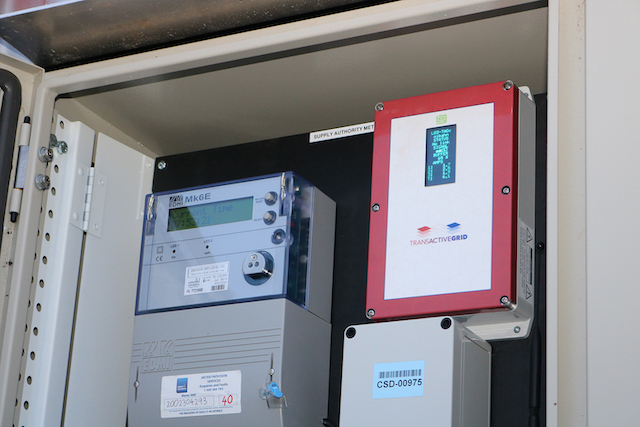The financial benefits of buying and selling locally produced energy from rooftop solar, wind turbines and batteries within communities have been revealed in a test case run by energy tech firm LO3 Energy.
The test, in which LO3 Energy modeled a local energy marketplace in Australia’s Latrobe Valley, revealed that consumers who ‘virtually’ buy and sell energy between each other can gain notable financial benefits, said LO3 in a press release.
Managing the network
One of the main challenges with peer-to-peer energy trading in local energy markets is the associated network and market charges – such as supply and demand management, grid balancing and infrastructure maintenance.
The modelling, which was done in partnership with Dairy Australia, Sustainable Australia Fund, CommPower Industrial, Siemens and Simply Energy, with financial support from ARENA and AusNet Services, explored three different scenarios related to these costs.
In one scenario, buyers and sellers did not pay network charges, another split the costs between buyers and sellers and one charged all the costs to the consumers, which is most consistent with existing markets and regulation and could immediately be implemented.
The third scenario showed consumers could potentially save 6-12% by buying locally and prosumers – consumers who own a distributed energy resource – could make 18-37% more than they get from their existing situation.
Driven by demand
Almost 100 consumers and prosumers participated in the modelling using data for an entire 12-month period.
LO3’s platform uses blockchain-based software to allow participants to trade energy locally and securely peer-to-peer. In the future it also aims to provide market operators such as the Australian Energy Market Operator (AEMO), retailers and network businesses with access to data to support grid services.
Participants pay a fee for accessing the platform and local energy prices are determined by market forces, with energy being sold at the highest price to the party that values it the most and is willing to pay the most for it.
As part of the test, local residents were asked what benefits they wanted from a local energy marketplace. More than a third (37%) said reducing bills while almost a quarter (23.5%) said addressing climate change.
Over half (58%) of respondents had solar panels and an additional 25.9% wanted them. Only 3.7% had battery storage, but almost half (48.1%) wanted it, and although only 2.5% had electric vehicles, a third (33.3%) wanted one.
Most crucially, three quarters of the respondents wanted to have greater visibility about how and when they use electricity – showing there is now significant consumer consciousness about energy usage.
Belinda Kinkead, LO3 Director, Australia, said: “The study showed the community wanted to embrace new technologies, wanted to keep energy spend in the community and wanted to buy their energy more cheaply.
“This test, which used a full year of data, demonstrates clear benefits for energy users and owners of private distributed energy resources who are able to buy and sell energy locally, within their communities.
“It also showed that even with existing regulatory restrictions, there are many regions in the world that could immediately implement local energy markets to manage DER growth and benefit consumers and producers.”
Overcoming the two-way problem
Trading local energy within a community incurs far fewer losses and is more cost efficient than long-distance power transport and with regulatory changes even more value could be directed to prosumers and consumers.
Advancements in technology and the increasing affordability of DER have accelerated their growth – but this has now left energy operators with an increasingly insurmountable problem.
There is now a two-way flow of energy, which has the potential to completely destabilize the existing infrastructure, but this is a problem local energy markets can help solve.
“Imagine networks as roads and electricity as cars,” explained Kinkead. “The system is designed for cars moving forward, from power station to end user, and the ‘cars’ adjust speed, respond to events and follow signs to suit.
“Now, with more and more generation in communities, cars are going in all directions. They can’t see where they’re going and the safety systems, the traffic lights, are designed for forwards traffic, so it’s chaos.”
Just as the economics of DER have accelerated demand from consumers, the proof that local energy markets can genuinely benefit both buyers and sellers has the potential to accelerate their adoption.
“The next step is to get these markets set up and then explore regulation changes to provide even bigger benefits,” said Kinkead.





